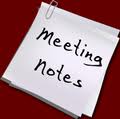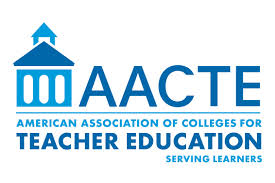Thanks to all of our new subscribers!
 The faculty of the EDST department met on Friday, October 25, 2013 for our second Curriculum Revision meeting. The primary focus of the meeting was to continue to look at the new CAEP Standards, the new NJ DOE regulations and determine how and where the CEHS could focus in order to better align with the new standards and regulations.
The faculty of the EDST department met on Friday, October 25, 2013 for our second Curriculum Revision meeting. The primary focus of the meeting was to continue to look at the new CAEP Standards, the new NJ DOE regulations and determine how and where the CEHS could focus in order to better align with the new standards and regulations.
This document is the original CAEP and NJ DOE alignment and it also integrates all of the notes from both the September and October curriculum revision meetings.
The following are some of the key take aways or potential action items from the meetings and notes (in no particular order):
1. How does/can SHU differentiate from the other 23 EPPs (Education Preparation Providers) in the state of NJ? What can we do to make it more attractive financially? How can we increase retention? How can we identify grant funds for SHU Ed majors to help attract and retain students? Is there STEM funding for Ed Math & Science majors?
2. How, when and in what capacity is the best way to engage alumni to help improve the programs and gain better insight?
3. What is the best way to evaluate field placement schools and cooperating teachers to ensure the best field experiences for our students?
4. Is it possible for CEHS to develop a relationship with another PDS? Possible in an urban setting and potentially with a focus on STEM?
5. In an effort to better understand the effective integration of technology in K-12 schools and how to better prepare our students on the use of technology, CEHS is actively pursuing putting together a Tech Advisory Committee focus group. This group would consist of tech supervisors and coordinators at field placement schools and a few CEHS faculty and would seek to understand the possible gaps in what is happening in schools and how our students are prepared. The work following the focus group would be to develop strategies to close any gaps.
6. How and where can EDST work to better bridge the gap in technology within the syllabi and curriculum to ensure integration and continuity? The suggestion was made that we begin by looking at the freshman year courses’ syllabi, learning goals and assessments to assess alignments. During this process it is important to keep an eye on the technology components throughout the CAEP and InTASC standards.
7. Currently, the InTASC standards are presented to seniors in the EDST program. Do the standards need to be introduced to students earlier? Possibly as early as freshman year?
8. As a point of reference, the faculty recognized the need to show the students how to access and conduct research. Where and how can this be integrated in the curriculum?
9. With the new standards, there is a need to look at the current student teacher evaluation and consider changing it or adding to the current model. Some possible options are: a) add a video component to the current Teacher Work Sample evaluation, b) consider using EdTPA and c) look at the Critical Competence Inventory that was developed as a student teacher evaluation tool by a consortium of NJ colleges.
10. Considering the new state regulations for students to pass the Core Academic Test before being admitted into an education program, students would need to pass it by the Fall of their Sophomore year. This raised the possible need to develop an orientation for freshman to help align and prepare them for passing the Core Academic Test. This requirement is explained in more detail in this post.
11. In an effort to increase communication and learn from each other, it was suggested to look for opportunities to cross-teach and learn from colleagues in many different areas, but particularly in the area of technology. How and where can we provide opportunities for internal professional development and cross-teaching?
12. Continue work on aligning the SPA standards with the InTASC standards.
 Mr. Michael Cohan, Director of Professional Development for NJEA, will be joining us here on campus in the fourth floor media lab. He will be providing CEHS, along with potentially some of our colleagues from Arts & Sciences, a 90 minute session on SGO’s in NJ. Topics to be covered inlcude what SGOs are, how they impact teachers in NJ, what the impact is on students and student learning and what it means for our faculty and student teachers in terms of preparing to teach in NJ’s schools.
Mr. Michael Cohan, Director of Professional Development for NJEA, will be joining us here on campus in the fourth floor media lab. He will be providing CEHS, along with potentially some of our colleagues from Arts & Sciences, a 90 minute session on SGO’s in NJ. Topics to be covered inlcude what SGOs are, how they impact teachers in NJ, what the impact is on students and student learning and what it means for our faculty and student teachers in terms of preparing to teach in NJ’s schools.




